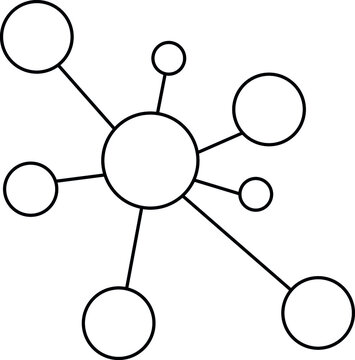1. Rigor#
#
#
\( \Large \left\{ \begin{array}{ll} \text{Truth} \\ \text{} \\ \textcolor{gray}{\text{Knowledge}} \ \ \left\{ \begin{array}{l} \textcolor{gray}{\text{Rigor}} \text{} \\ \text{Error} \ \ \ \ \ \ \ \ \ \left\{ \begin{array}{l} \text{Variance} \\ \text{Bias} \end{array} \right. \\ \text{Sloppy} \end{array} \right. \left\{ \begin{array}{l} \text{Explain/Control} \end{array} \right. \\ \text{} \\ \text{Ethics} \end{array} \right. \)
#
#
Complexity of Knowledge in Empirical Decision-Making
Introduction
Science is constructed upon empirically validated evidence that cumulatively forms our Knowledge. However, when we dissect the processes producing the data, matters of Truth and Ethics become focal points, often blurred in real-world applications.
A Case Study: The CKD-EPI Equation and Cisplatin Therapy

Consider a Urologist evaluating the impact of the new race-neutral CKD-EPI 2021 equation for determining eligibility for cisplatin therapy among bladder cancer patients. For over a decade, the standard has been the CKD-EPI 2009 equation, requiring four inputs:
Serum Creatinine (SCr): A byproduct of muscle metabolism, measured in mg/dL or µmol/L.
Age: The patient’s age in years.
Sex: Biological sex (Male or Female), relevant due to differences in muscle mass and consequently, creatinine levels.
Race: Originally included as a variable in the CKD-EPI 2009 equation, race has since become a point of ongoing debate due to ethical concerns.
The Original Equations
The CKD-EPI 2009 equation relies on subgroup-specific formulations to calculate the Glomerular Filtration Rate (GFR).
For females with SCr ≤ 0.7 mg/dL: \(GFR = 144 \times \left( \frac{{SCr}}{0.7} \right)^{-0.329} \times 0.993^{Age}\)
For females with SCr > 0.7 mg/dL: \(GFR = 144 \times \left( \frac{{SCr}}{0.7} \right)^{-1.209} \times 0.993^{Age}\)
For males with SCr ≤ 0.9 mg/dL: \(GFR = 141 \times \left( \frac{{SCr}}{0.9} \right)^{-0.411} \times 0.993^{Age}\)
For males with SCr > 0.9 mg/dL: \(GFR = 141 \times \left( \frac{{SCr}}{0.9} \right)^{-1.209} \times 0.993^{Age}\)
For African Americans, the estimated GFR is then multiplied by 1.159.
The Impact of a Race-Free Equation
Adopting the new race-neutral equation opens a plethora of questions that warrant rigorous empirical scrutiny:
What is the new classification of bladder cancer patients?
How does this impact eligibility for cisplatin therapy?
Are there expected changes in adverse effects?
Such questions require methodical empirical investigation, inviting the reader to consider possible study designs.
Rigor, Error, and Sloppiness
The methods for collecting, processing, and analyzing evidence emphasize issues of rigor, error, and sloppiness. The notions of “truth” and “justice,” while fascinating, are better suited to advanced dialogues in philosophy and statistics.
We have a wall covered in photos, timelines, and red strings. Whether its a detective investigating an organized crime family or its a caseboard for a specific investigation, rigor across various disciplines may incoporate broadly similar approaches.
We propose 15 tokens to represent academic life in the 21st century. These tokens are not meant to be exhaustive, but rather, to provide a starting point for discussion:
Rigor
Error
Sloppiness
Manuscripts
Code
Git
Python
R
Stata
Open Science
Self-Publishing
Grants
Automation
Bash
Unix
Over time we are going to articulate these ideas in a more formal manner, but for now, we present them as placeholders and invite you to consider how they may be useful in your own work. Consider the following case study and how some of these 15 tokens are missing from the dialogue:
🏧
🌕
Michel Foucault was a French philosopher and social theorist known for his explorations of power, knowledge, and institutions. His work has been highly influential across a range of disciplines including philosophy, history, sociology, and more. One of his major contributions is the idea that power is not merely a top-down force exerted by a sovereign, but a complex structure that operates in all aspects of life, often in covert ways.
Foucault often examined the relationship between knowledge (“savoir”), power/truth (“pouvoir”), and visibility/justice (“voir”). He argued that power and knowledge are intertwined; one cannot exist without the other. Institutions, according to Foucault, use knowledge to exert power, and those in power control what counts as knowledge. The concept of visibility comes into play in his discussions of panopticism, a social theory named after the Panopticon, a type of prison building designed by Jeremy Bentham. In a Panopticon, all prisoners can be observed by a single watchman without the prisoners being able to tell whether they are being watched, thus leading them to self-regulate their behavior.
Foucault’s ideas have been instrumental in understanding how societal institutions—from prisons and hospitals to schools and the military—function to shape and control individuals. His work remains a cornerstone of critical theory and has inspired countless studies examining the nexus of power, knowledge, and visibility in various contexts.
🪙
The CKD-EPI (Chronic Kidney Disease Epidemiology Collaboration) equation is a formula often used to estimate the Glomerular Filtration Rate (GFR), a measure of kidney function. The CKD-EPI 2009 equation, while more accurate than the older MDRD (Modification of Diet in Renal Disease) equation, raised issues of justice and equity in the United States due to its inclusion of race as a variable. It’s worth noting that these issues have yet to garner attention in other countries.
